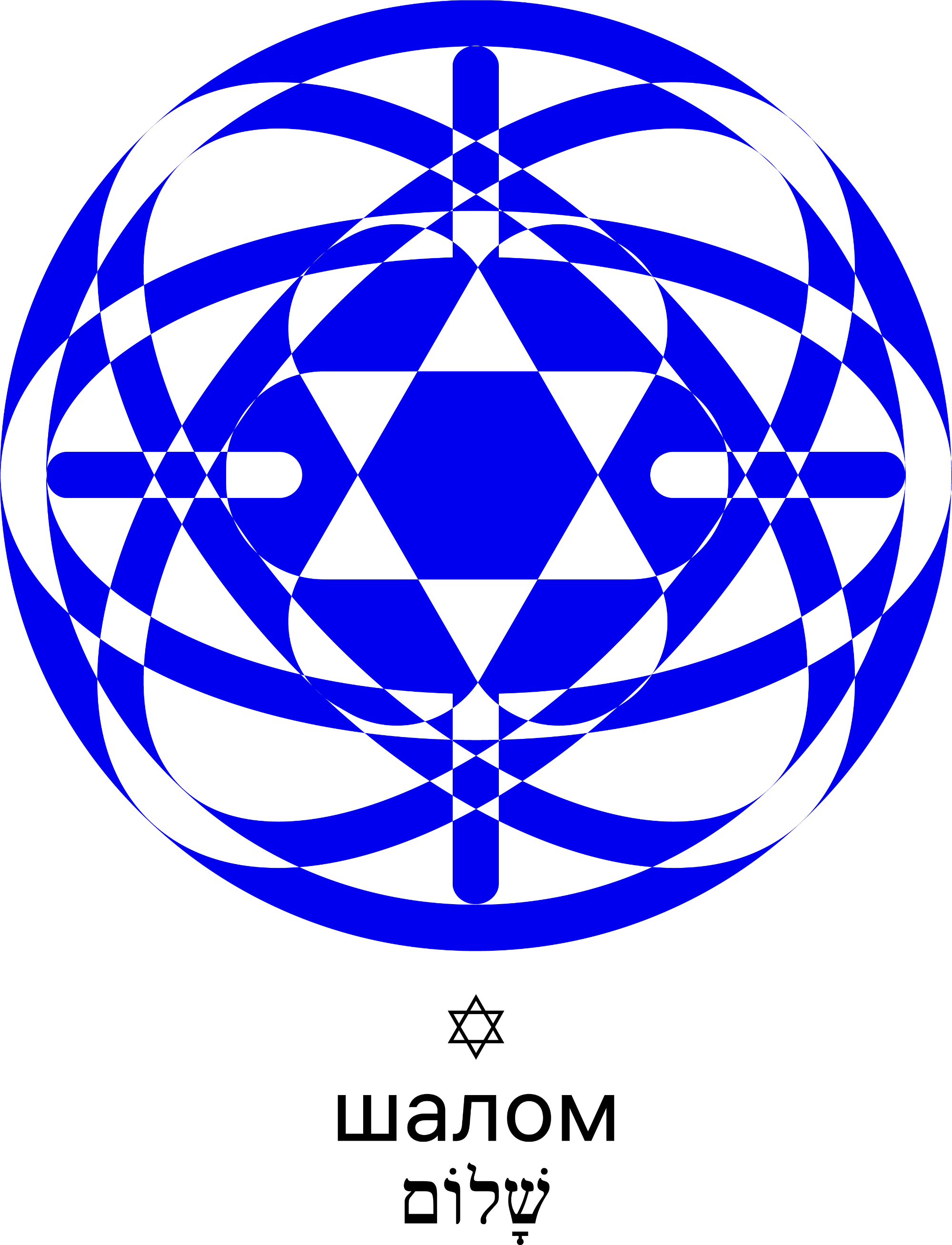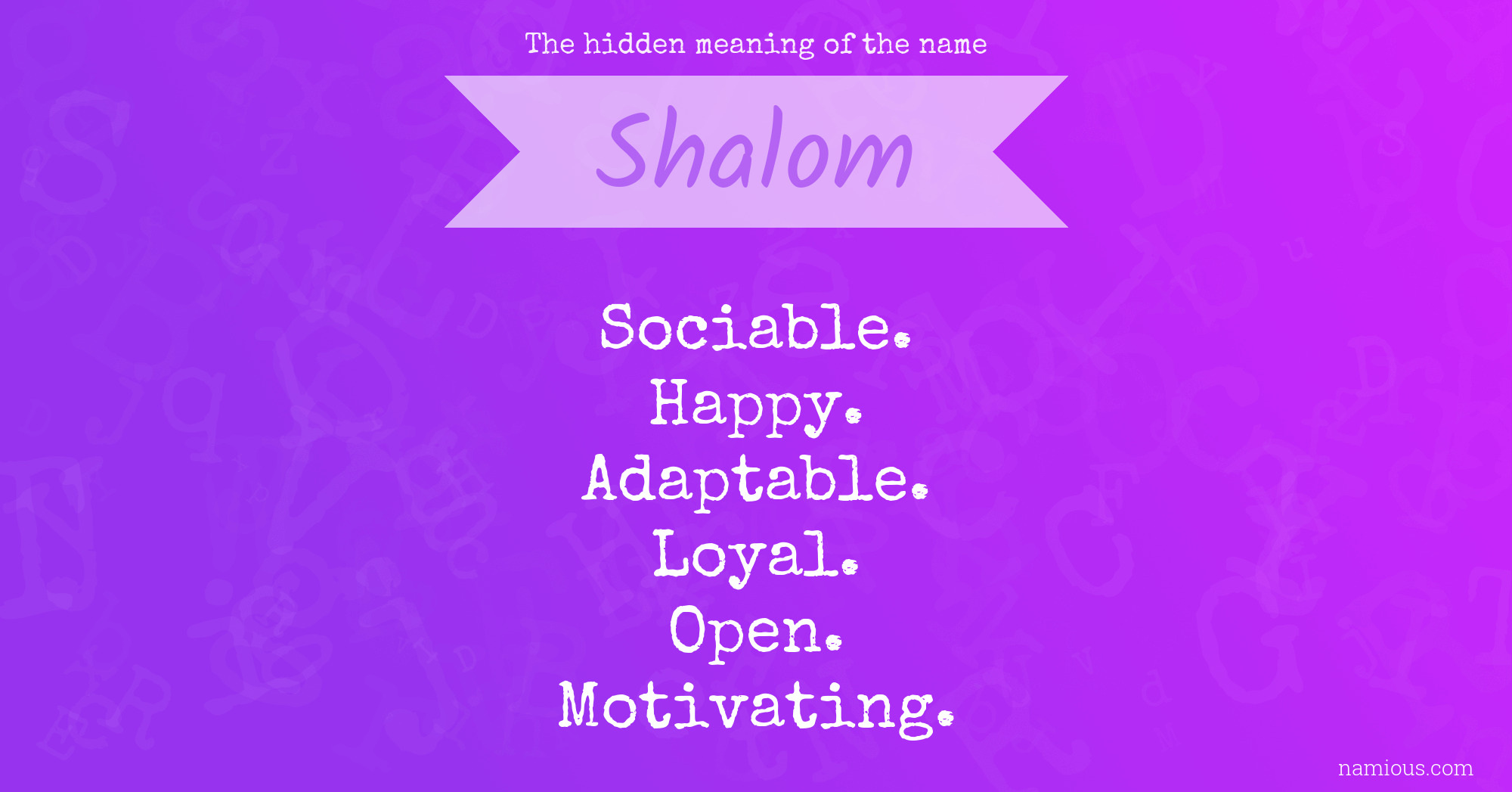What Nationality Is The Name Shalom? Uncovering Its Deep Roots
Have you ever stopped to think about the stories names tell? It's really quite fascinating, you know, how a name can carry so much history and meaning. When we hear a name like Shalom, a lot of us, I mean, we might wonder about its origins, where it truly comes from, and what kind of background it represents. So, in a way, exploring the name Shalom isn't just about a word; it's about uncovering a piece of cultural heritage.
Understanding where a name like Shalom fits in, you see, often starts with understanding what "nationality" itself means. My text tells us that nationality is, in fact, the legal status of belonging to a particular nation. It's about your official right to be part of a certain country, or perhaps it's about being a member of a group of people who share a common history, traditions, and even language, and who, you know, often live together in a specific country.
So, when we ask, "What nationality is the name Shalom?", we're really asking about its cultural home, its linguistic beginnings, and where it has, you know, been embraced most deeply. This exploration, as a matter of fact, will take us through its profound meaning and its significant place in certain traditions, giving us a clearer picture of its true identity.
- How Much Is Dude Perfect Worth
- Kate Walsh Net Worth
- Olivia The Singer
- Jesse Williams Net Worth
- Greg Kinnear Net Worth
Table of Contents
- Understanding Nationality: What It Really Means
- The Name Shalom: A Look at Its Roots
- Frequently Asked Questions
Understanding Nationality: What It Really Means
When we talk about nationality, it's, you know, more than just a simple label. My text explains that nationality is the legal status of belonging to a particular nation, which is essentially a group of people organized in one country, under one legal jurisdiction. It’s also about your country of residence or citizenship, most often, and that's a pretty clear way to think about it.
It's, like, the official right to belong to a particular country, whether you were born there or became a citizen through a process called naturalization. So, you can see, it's very much about your connection to a specific state and the rights, responsibilities, and protections that come with that, you know, granted by the government.
Sometimes, too, it's almost about a group of people who share the same race, or perhaps a group who are united on some level, sharing a common history, traditions, and language. This can be, in a way, a bit different from race or ethnicity, which are distinct concepts. My text points out that there are, quite honestly, circumstances where a person’s nationality can be a bit of a gray area, which makes sense when you think about it.
- Quavo From The Migos Net Worth
- Darcy Lapier Spouse
- Tom Izzo Net Worth
- Sharon Case Net Worth
- Bernadette Stanis Net Worth
Basically, nationality is defined by the legal boundaries of a state. It's about your membership, you know, in a particular nation, and that status brings with it certain things. For example, if you have the nationality of a particular country, it means you were born there or have the legal right to be a citizen. It's, as a matter of fact, about your formal ties to a country, and that's a key part of it.
The Name Shalom: A Look at Its Roots
Now, let's turn our attention to the name Shalom itself, because, you know, it has a truly rich background. My text tells us very clearly that the name Shalom is of Hebrew origin. It's something that is, quite literally, deeply rooted in Jewish culture and tradition, and that's a pretty significant detail.
Where Does Shalom Come From?
The meaning of Shalom is, in fact, quite profound. It is commonly translated as "peace" in English, but its significance goes, you know, beyond just the absence of conflict. It's about completeness, soundness, and well-being. The Hebrew verb "shalem" means "to be complete, sound," and that's where the familiar noun "shalom" gets its deep sense, you know.
Interestingly, the name Shalom is not only a word; it has also, apparently, been embraced as a personal name in certain cultures. It signifies the hope for a life filled with peace, and serves, in a way, as a reminder to cherish that idea. This connection to peace and wholeness is, you know, a very central part of its identity.
My text also mentions that originally, the name Salem probably had to do with a Ugaritic god. But, transliterated, this name neatly concurs with the Hebrew verb "shalem" and the noun "shalom," meaning peace. There's no town as biblical as Jerusalem, but it was, you know, neither built nor named by the Israelites. Remnants of a Canaanite town called Salem, as a matter of fact, date back to the early Bronze Age, and that's a pretty old connection.
Place mentioned in Genesis xiv.18, from Hebrew "shālēm," is usually said to be another name for Jerusalem and to mean peace. This is, you know, very similar to Hebrew "shalom" and Arabic "salaam." The imagery of "Jehovah Shalom" is, actually, one of three names for God that was given to an altar. This happened when the angel of Yahweh visited Gideon to recruit him as a new judge over Israel, and that's, you know, a powerful association.
Shalom in Biblical Contexts
When we look at biblical connections, you know, a few interesting points come up. The name "Shiloh" is applied twice in the Bible, once as a messianic title in Genesis 49:10, spelled "שילה." And then, it's also, you know, a much-mentioned town in Ephraim, like in Joshua 18:1, spelled three different ways: "שילו" or "שלו" but mostly "שלה." This is, you know, distinct from Shalom, but it's good to note the different names that appear.
There's also, apparently, only one woman named Salome in the Bible, and she is mentioned twice, but only by Mark, as one of the women who stood with the Marys under the cross of Christ. This is, you know, a different name again, but it shows how names with similar sounds can have very different stories. It's, you know, quite interesting how these names appear.
From the Hebrew name "שְׁלֹמֹה" (Shelomo), which was derived from "שָׁלוֹם" meaning peace, we get the name Solomon. As told in the Old Testament, Solomon was, you know, a king of Israel, the son of David. This connection shows how the concept of peace, "shalom," was, in a way, directly incorporated into a very significant name in biblical history.
The wish for "shalom al Israel," peace upon Israel, as seen in Psalms 125:5, resonates with national and individual aspirations for security and tranquility. This phrase, you know, truly embodies the deep cultural and spiritual significance of the word "shalom." It's, like, a powerful expression of hope for an entire people.
Shalom as a Surname and Its Reach
Beyond being a given name, Shalom also exists as a surname, and my text notes that the surname Shalom is, you know, a unique entry in our records. This means it's not, perhaps, as common as some other surnames, but it definitely carries that same powerful meaning.
My text provides some interesting details about its distribution, which is, you know, quite specific. The race and Hispanic origin distribution of the people with the name Shalom is 79.7% white, 5.2% Hispanic origin, 8.0% black, 4.6% Asian or Pacific Islander, and 2.1% two or more races. This data, you know, gives us a glimpse into the diverse backgrounds of people who carry this name today.
It's, you know, quite telling how a name rooted in one specific culture can spread and be adopted by people from various backgrounds. This kind of distribution, as a matter of fact, shows the broader appeal and recognition of the name Shalom, even as a family name.
Shalom Harlow: A Modern Example
To bring this into a more contemporary light, my text mentions Shalom Harlow, who is, you know, a Canadian model and actress. She was born in Oshawa, Ontario, and is the daughter of her parents. This example, you know, shows that the name Shalom is very much in use today, even outside of its primary cultural context.
Her public presence, in a way, helps to keep the name visible and familiar to a wider audience. It's, you know, a good example of how names travel and become part of different national landscapes, even while retaining their original, deep meanings. This just goes to show, you know, how names can have a life of their own across borders.
The fact that a prominent figure carries this name also, you know, contributes to its recognition globally. It's a reminder that names, like people, can have a truly international reach, and that's, you know, pretty cool to think about. You can learn more about name origins on our site, and, you know, delve into the stories behind other fascinating names.
Frequently Asked Questions
People often have questions about names and their backgrounds, so here are a few common ones about Shalom.
What is the primary meaning of the name Shalom?
The name Shalom, you know, primarily means "peace." However, its significance goes beyond just the absence of conflict; it also means "completeness" and "soundness." It's a very rich concept, you know, encompassing well-being and wholeness.
Is Shalom only used as a word, or is it a personal name too?
Shalom is, actually, both a word and a personal name. While it's a common Hebrew greeting and farewell meaning "peace," it has also, you know, been embraced as a personal name in certain cultures. It signifies the hope for a life filled with peace, and that's a pretty powerful idea.
How does the name Shalom relate to the biblical figure Solomon?
The name Solomon comes from the Hebrew name "שְׁלֹמֹה" (Shelomo), which was, you know, derived from "שָׁלוֹם," meaning peace. So, in a way, Solomon's name is directly connected to the concept of peace, and that's, you know, a very interesting link between them. You can check out more about name meanings here, and, you know, discover a whole lot more about names.
- Eli Manning Net Worth 2024
- Peter Gunz Net Worth
- Net Worth Of Bo Derek
- Michael Symon Net Worth
- Net Worth Of Robin Quivers

Shalom kindergarten logo

The hidden meaning of the name Shalom | Namious

Shalom (@Shalom30886106) / Twitter